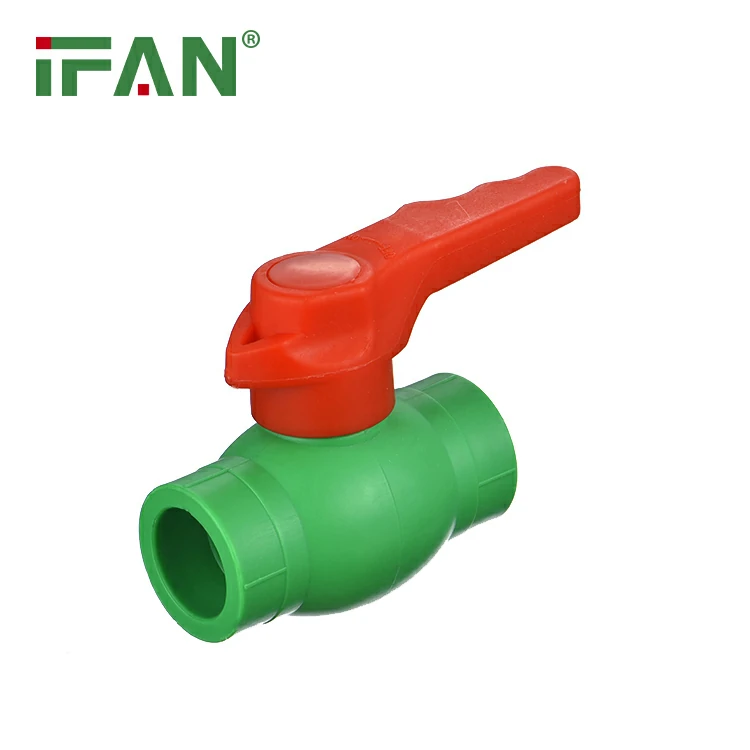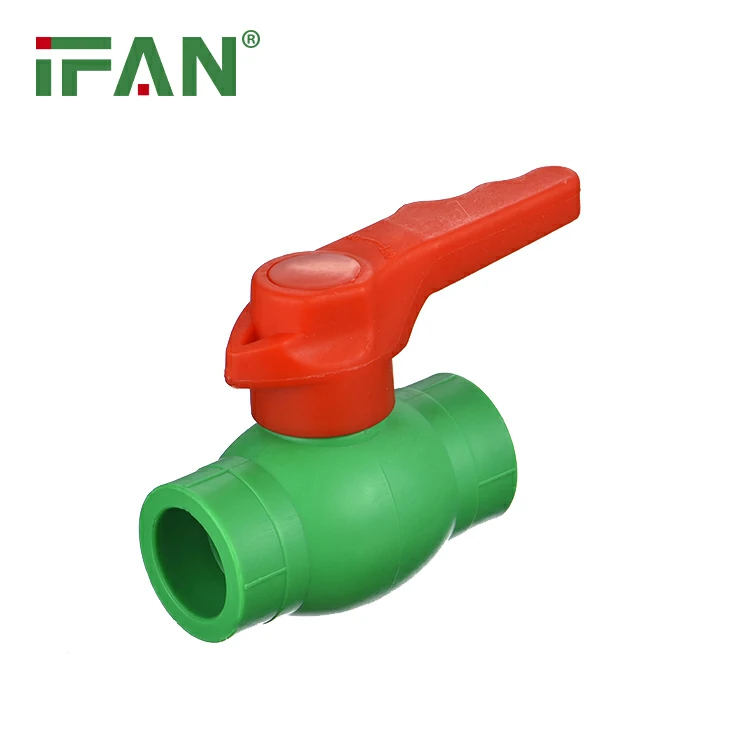PPR ball valves deliver superior water control for residential and commercial applications. These precision-engineered components ensure reliable shut-off performance in hot and cold water systems.
What Makes PPR Ball Valves Essential for Modern Plumbing
PPR (Polypropylene Random Copolymer) ball valves combine durability with cost-effectiveness. The material resists corrosion, chemicals, and high temperatures up to 95°C. Unlike traditional brass valves, PPR variants won’t develop mineral buildup or suffer from galvanic corrosion.
Professional installers choose PPR ball valves for their lightweight design and easy installation process. The smooth bore design maintains optimal flow rates while providing complete shut-off when needed.
Key Features of High-Performance PPR Ball Valves
Temperature Resistance
PPR ball valves withstand extreme temperature fluctuations without cracking or warping. They perform consistently in both hot water heating systems and cold water distribution networks.
Chemical Compatibility
These valves resist acids, alkalis, and salt solutions. The non-toxic material ensures safe drinking water applications without taste or odor transfer.
Pressure Ratings
Quality PPR ball valves handle pressures up to 25 bar (363 PSI). This specification covers most residential and light commercial applications.
Connection Options
Available in threaded, socket welding, and flanged configurations. Common sizes range from 20mm to 110mm diameter.
Applications for PPR Ball Valve Systems
Residential Water Systems
- Main water line shut-offs
- Individual fixture isolation
- Hot water heater connections
- Pool and spa plumbing
Commercial Applications
- Office building water distribution
- Hospital and healthcare facilities
- Food processing plants
- Chemical processing systems
Industrial Uses
- Manufacturing facility water supplies
- Cooling system controls
- Process water management
- Emergency shut-off applications
Installation Best Practices
PPR ball valve installation requires proper fusion welding techniques. Heat the pipe and fitting to 260°C for optimal joint strength. Allow adequate cooling time before pressurizing the system.
Position valves for easy access during maintenance. Install with the handle pointing toward the shut-off direction. Mark valve positions clearly for emergency situations.
Consider thermal expansion when spacing valves in long pipe runs. PPR materials expand approximately 0.15mm per meter per 10°C temperature increase.

Sizing Your PPR Ball Valve Order
Flow Rate Calculations
Determine required flow rates based on fixture demand. Standard residential applications need 15-25 liters per minute capacity. Commercial systems may require 50+ liters per minute.
Pressure Drop Considerations
PPR ball valves create minimal pressure drop when fully open. Calculate system pressure losses to ensure adequate pressure at end points.
Quantity Planning
Order 10-15% extra valves for maintenance spares and future expansions. Group orders by size to optimize shipping costs.
Quality Standards and Certifications
Premium PPR ball valves meet ISO 15874 standards for polypropylene pipe systems. Look for third-party testing certificates covering:
- Pressure testing at 1.5x working pressure
- Temperature cycling verification
- Chemical resistance validation
- Long-term hydrostatic strength testing
NSF certification ensures potable water safety compliance. CE marking confirms European safety standards adherence.
Maintenance Requirements
PPR ball valves require minimal maintenance compared to metal alternatives. Inspect quarterly for external damage or leaks. Exercise valves monthly to prevent seizure from mineral deposits.
Replace valve seals every 5-7 years in high-use applications. The PPR body typically lasts 25+ years with proper installation and operation.
Cost Benefits of PPR Ball Valves
PPR ball valves cost 30-40% less than equivalent brass valves. Installation labor reduces by 20% due to lightweight handling and simplified joining methods.
Lifecycle costs remain low due to corrosion resistance and minimal maintenance needs. Energy savings result from smooth internal surfaces and reduced friction losses.
Custom PPR Ball Valve Solutions
Standard PPR ball valves may not suit every application. Custom solutions address unique requirements:
Modified Port Configurations
- Reduced bore for pressure reduction
- Full bore for maximum flow
- Multi-port for distribution systems
Special Materials
- UV-resistant compounds for outdoor use
- Antistatic formulations for explosive atmospheres
- Food-grade materials for beverage applications
Unique Connections
- Hybrid metal-PPR transitions
- Compression fittings for retrofit projects
- Flanged ends for large diameter systems
Ordering Process for PPR Ball Valves
Technical Specifications Required
- Valve size (DN/NPS designation)
- Pressure rating (PN/Class)
- Connection type (threaded/socket/flanged)
- Operating temperature range
- Special certifications needed
Lead Times and Quantities
Standard sizes ship within 2-3 weeks. Custom configurations require 4-6 weeks production time. Minimum order quantities vary by size and specification.
Packaging and Shipping
PPR ball valves ship in protective cartons with moisture barriers. Palletized shipments available for large orders. International shipping includes proper documentation and customs declarations.
Why Choose Professional PPR Ball Valve Suppliers
Experienced suppliers provide technical support throughout the selection process. They offer system design assistance and compatibility verification with existing installations.
Quality suppliers maintain inventory of common sizes for quick delivery. They provide detailed specifications and test certificates with every shipment.
Professional suppliers offer custom manufacturing capabilities for unique applications. Their engineering teams can modify standard products to meet specific requirements.
Technical Support and Documentation
Comprehensive technical documentation includes:
- Installation procedures and specifications
- Pressure-temperature rating charts
- Chemical compatibility tables
- Troubleshooting guides
- Warranty terms and conditions
Technical support teams assist with:
- Product selection guidance
- System design reviews
- Installation problem resolution
- Maintenance scheduling recommendations
Conclusion
PPR ball valves provide reliable, cost-effective water control for diverse applications. Their corrosion resistance, temperature tolerance, and easy installation make them ideal for modern plumbing systems.
Professional specification and quality manufacturing ensure optimal performance and longevity. Custom solutions address unique requirements while maintaining competitive pricing.
Contact experienced PPR ball valve suppliers for technical guidance and competitive quotes. Proper selection and installation deliver years of trouble-free water control performance.
For custom PPR ball valve solutions and technical specifications, contact professional pipe system manufacturers who specialize in high-performance water control products.














Recent Comments